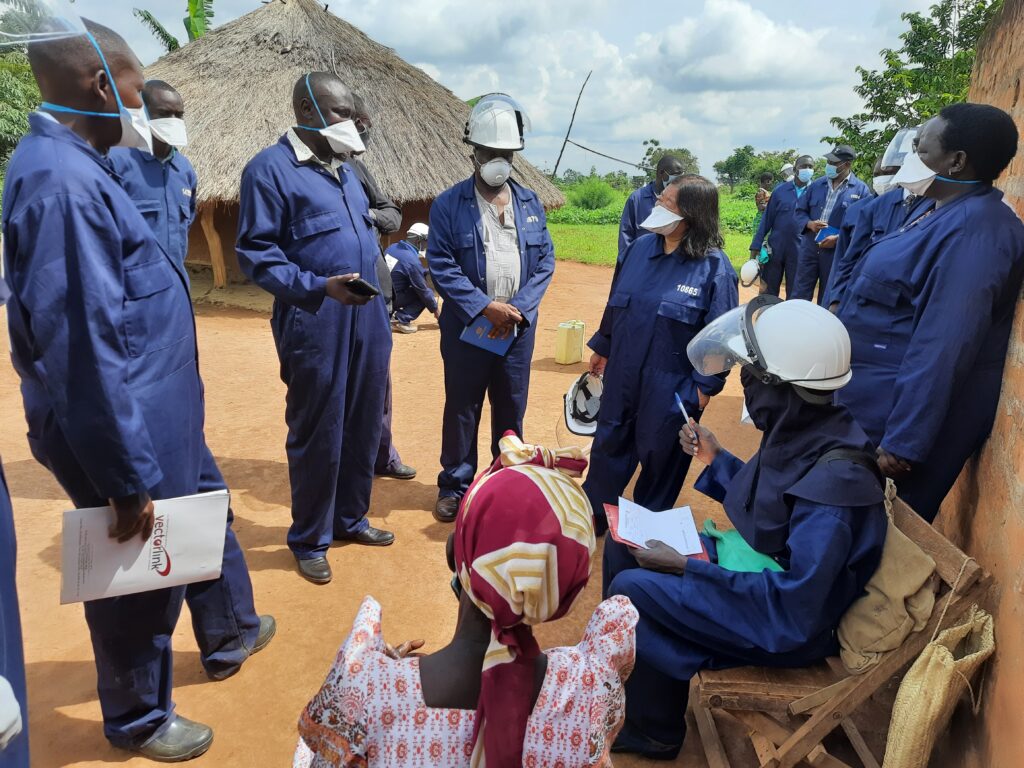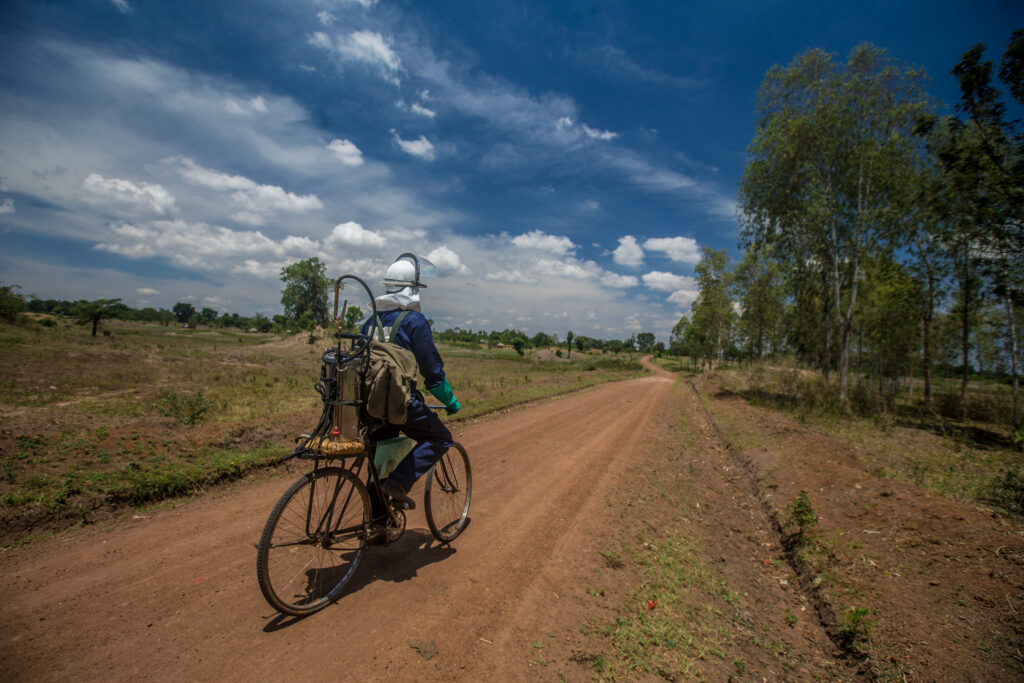“As a leader, people used to come to my home nearly daily either asking for transport to the health center or money for treatment; I would help where I could, but it was overwhelming,” says Evaline Nampima, a district councilor, representing the Muwayo town council, and a fierce advocate for her community. During the annual campaign to spray homes with a mosquito-killing insecticide to prevent malaria, Evaline became one of her town’s strongest supporters of the intervention.
Last year, the U.S. President’s Malaria Initiative (PMI) supported spray campaigns that protected 19.2 million people globally. Community advocates like Evaline are critical for campaign success. Since the U.S. President’s Malaria Initiative (PMI) started spray campaigns through the VectorLink Uganda Project in 2018, Evaline worked diligently as a campaign mobilizer in Bugiri district to educate her community on the benefits of indoor residual spraying for protection against malaria.
Malaria is personal to Evaline. “I used to take my children almost weekly to the hospital. I would bring one home and another one would be down with malaria,” she shares.
Evaline recalls that before homes were sprayed, “there used to be so many cases of malaria that when you’d go to the health center, it would be full.” This is why Evaline works so hard to ensure her community is protected from this disease.
“During the campaign, I meet the spray team first before they go to the field to start their work,” shares Evaline. “I tell them how to approach a home and talk to the owners because home entry techniques and approach is very important in community acceptance of this malaria prevention method.”
Evaline also participates in community dialogues—a participatory communication process where information is shared with groups of people to help solve problems such as increasing the number of households accepting spraying—when there is resistance to accepting the intervention.
Convincing community members to accept interventions that protect people from malaria is challenging. And that’s where Evaline comes in. With training from the Communication for Development Foundation Uganda (CDFU), she helped convince her community to accept having their homes sprayed.
PMI has worked with CDFU, a Ugandan nongovernmental organization that helps change community norms, strengthen local capacity, and engage the community since 2015 to support spray campaigns. CDFU has trained Evaline and dozens of others as mobilizers to ensure Bugiri district was protected from malaria.

A meeting with community members involved in an IRS campaign in Uganda in 2018. Photo Credit: PMI Uganda.
“Before the 2023 spray campaign began, we completed a five-day training where we were taken through communications skills, homeowner entry techniques, sexual violence prevention, and interpersonal communication,” explains Evaline. These skills help mobilizers communicate effectively with households and spray operators.
Interpersonal communication works to encourage community members to accept having their homes sprayed because it allows them an opportunity to express their concerns one-on-one. Some reasons people don’t want their homes sprayed include not liking the smell of the insecticide, thinking it leads to bed bug infestation, and that it can lead to infertility.
“There are some issues in the community that people feel can’t be shared in public during community dialogues,” says Angom Dorcas Hope, project assistant for CDFU. Interpersonal communication empowers community members to privately share their concerns.
Evaline’s community mobilization efforts have paid off. In Bugiri, spray operators have covered 92.6 percent of homes, protecting close to 80,000 people, including over 17,000 pregnant women and 110,000 children under five in 2023.
After the spray campaign is over, Evaline talks to communities about the importance of sleeping under a mosquito bed net and getting rid of stagnant water around homes as malaria-carrying mosquitoes can breed there. When she gets a chance to talk with women’s groups, she encourages women to take their children to the health center if they have fevers and pregnant women to go early for antenatal care.
Evaline says, “if we continue to inform our community about spray benefits, but also embrace other preventive measures—seeking early testing and treatment and supporting health workers—we shall see a malaria-free Bugiri.”
Cover photo: Evalina during a radio talk show to talk about the benefits of having homes sprayed on NBS FM in Jinja. Photo Credit: Angom Dorcas Hope, Communication for Development Foundation Uganda.
From 2017 to 2023, the PMI VectorLink Project has worked across 25 countries in sub-Saharan Africa as well as Cambodia and Colombia to equip countries to plan and implement safe, cost-effective, and sustainable indoor residual spraying, insecticide-treated net distributions, and other life saving interventions to prevent malaria. PMI VectorLink has also strengthened the capacity of country governments to use data to support the optimal deployment of vector control tools within their country.

